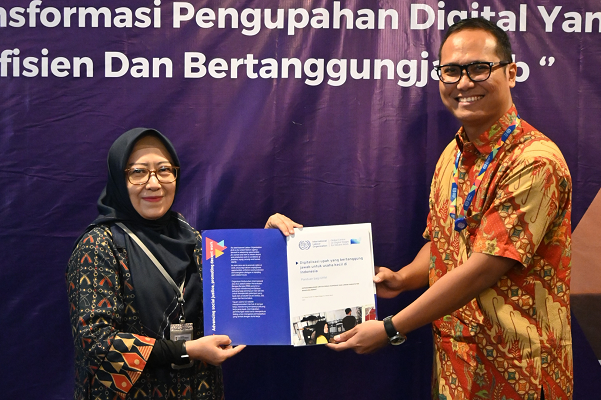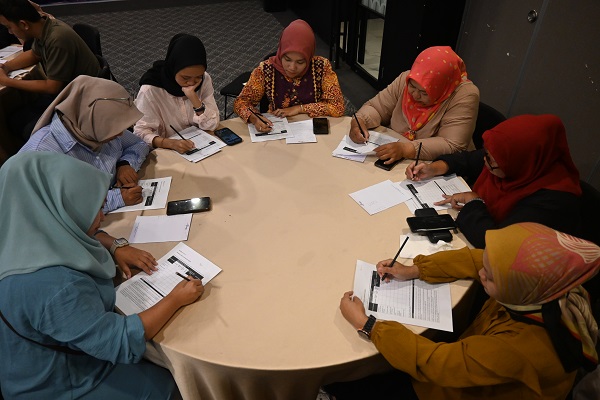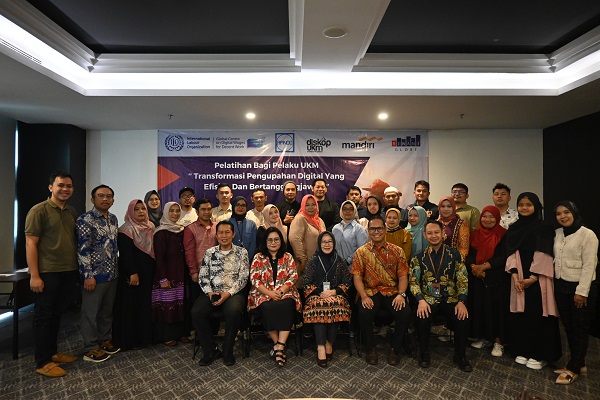Contact us: digitalwages@ilo.org
ILO and Bandung regional government empower small businesses in the transition to digital wage payments

The ILO’s Global Centre on Digital Wages for Decent Work joined forces with the Regional Government Cooperatives and MSME Office for the Bandung District, West Java Province, to conduct specialized training sessions aimed at supporting small enterprises responsibly transition from cash to digital wage payments.
The sessions were held over two groups from 2 to 4 March 2024 with participation from 51 small businesses in various sectors, especially garment and food processing, ranging from 6 to 30 workers.
Bank Mandiri and Bank BJB participated in the sessions and provided insights into financial products and services tailored to support responsible digital wage payments. This collaborative effort aimed to equip participants with the necessary knowledge and tools to navigate the transition effectively.

West Java government’s digitization programme for SMEs
Mrs. Sri Dustriawati, Head of the Regional Government Cooperatives and MSME Office opened the training in Bandung and noted that SME digitalization programmes generally focus on strengthening businesses to increase profits and sustain sales, but awareness of digital wage payments is often forgotten. She noted the importance of the topic for business efficiency and transparency, recognizing that many small business owners and their workers are not aware of it.
The initiative of the ILO’s Global Centre on Digital Wages for Decent Work aligns with the broader SME digitalization programme led by the West Java Provincial Government. According to Statistics-Indonesia, there were 4.4 million small businesses in West Java in 2022, which employed 96 per cent of the workers in the area.
Mrs. Dustriawati emphasized the importance of collective action in driving meaningful change and encouraged synergy among stakeholders, including the ILO, financial service providers and government agencies, to promote responsible digital wage payment practices at the regional level.

A training and mentoring programme for small businesses
The training curriculum includes a comprehensive range of topics, such as the importance of responsible digital wages for both employers and workers, the establishment of simple payroll systems and practical steps for the implementation of digital wages. Through interactive discussions and hands-on guidance, small businesses were encouraged to formulate action plans tailored to their specific contexts.
The training sessions are the first step to the capacity building of participants, with ongoing support from the ILO through coaching and mentoring sessions aimed at addressing challenges during the transition process. Small businesses’ commitment to the mentoring programme is important to ensure a seamless and sustainable shift towards digital wage payments.
Small businesses are committed to the transition
Reflecting on the training sessions, participants expressed their commitment to transitioning to digital wage payments, recognizing the benefits of increased efficiency and transparency. However, challenges lie ahead, particularly in convincing workers used to cash payments and navigating the landscape of services and products of financial and payroll service providers. Despite these challenges, participants agree that the topic represents an important step towards their integration to an increasingly digital economy.
